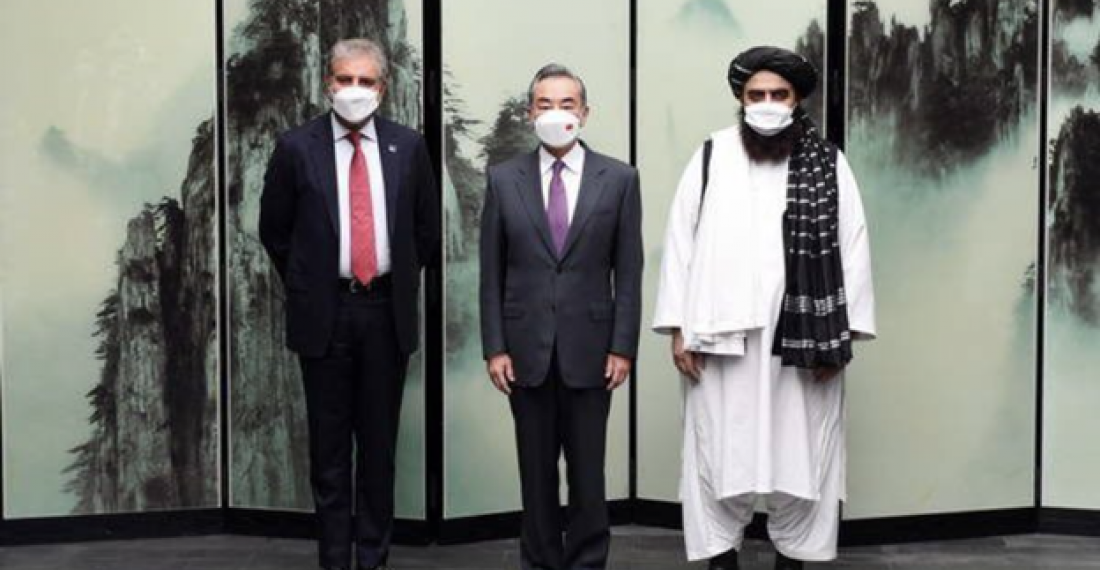China last week hosted a conference on Afghanistan in the Eastern province of Anhui. Countries in attendance included Afghanistan, China, Iran, Pakistan, Russia, Tajikistan, Turkmenistan, and Uzbekistan. Both Beijing and Moscow had words of support for the Taliban regime with the Russian Foreign Minister subsequently accepting the accreditation of a Taliban envoy.
Since the withdrawal of American troops from Afghanistan in August last year, China has attempted to play a bigger role in the region. Beijing has been mindful in its approach toward Afghanistan, advocating a “cautious alliance”. China is yet to formally recognize the Taliban government. However, it is strengthening its links with the Taliban. Last week, Wang Yi, the Chinese Foreign Minister, visited Kabul and invited Taliban government to the regional conference in Anhui. There, Wang said, “China has all along respected Afghanistan’s sovereignty, independence and territorial integrity, and is committed to supporting Afghanistan’s peaceful and stable development.”
Russia has also strengthened links with the Taliban regime. Sergey Lavrov, the Russian Foreign Minister, said, "I would like to note that the first Afghan diplomat who arrived in Moscow last month and was sent by the new authorities has received accreditation at the Russian Foreign Ministry.” While Russia has labelled the Taliban as a “terrorist organisation”, the accreditation of the new government in Kabul signals a major shift in its policy toward Afghanistan.
An explanation for Beijing and Moscow’s push to reinforce relations with the Taliban is their concerns regarding instability and the possibile revival of hard line Islamic militantism in Afghanistan, and its possible impact on neighbouring countries. China has asked for assurances from the Taliban that they would not let members of China’s Turkic Muslim Uyghur minority, who want to overthrow Chinese rule in Xinjiang, operate in Afghanistan.
The ISKP, the Islamic State chapter active in Afghanistan and Central Asia, who are also opposed to the Taliban, are beginning to increase their presence in Central Asia. They have been disseminating propaganda videos in several languages, including Uzbek, Tajik, and Kyrgyz. Moscow is worried that Islamic militants could undermine their southern buffer and eventually threaten Russia itself. Lavrov stated, "The plans of the Islamic State and its supporters to destabilize Central Asian states and export instability to Russia are of particular concern.” Beijing and Moscow hope that a strengthened Taliban will ensure stability in the region and prevent resurging Islamic militancy.
Both Russia and China are aware that the issue of relations with the Taliban is also very sensitive with western countries including the US and Europe. By taking steps unilaterally to establish relations they are clearly indicating that they will not be constrained by western concerns on the matter.
Sources: CommonSpace.eu with The Diplomat (Washington D.C), Reuters (London), Eurasianet (New York), and other media agencies
Picture: Pakistani Foreign Minister (left), Chinese Foreign Minister (centre), and Taliban Foreign Minister (right), at a meeting in Anhui province. (Twitter/Chinese Ambassador to UN)







